NGO WORK
5 things to watch at the World Economic Forum on Africa
Published
7 years agoon
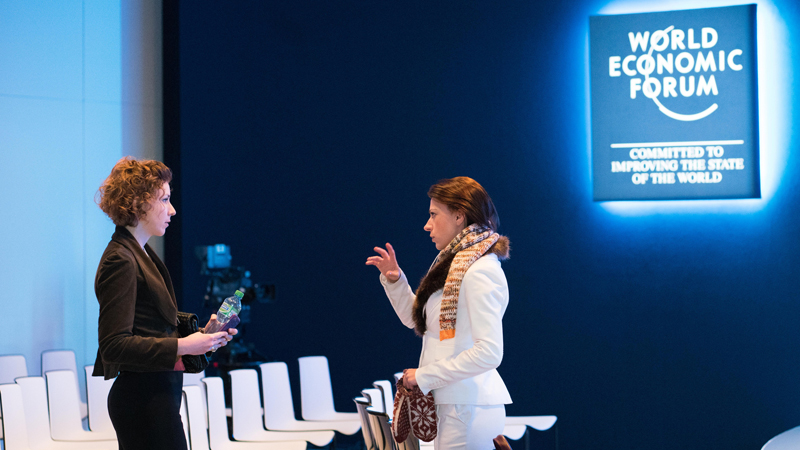
DURBAN, South Africa — South Africa was once seen as a beacon of African growth and an example for the rest of the continent to follow. But while the country is still the only African member of the G-20, it faces a series of recent challenges — from a downgrading of its credit rating to junk status to allegations of corruption at the highest level — as it is set to host the 27th World Economic Forum on Africa.
About 1,000 business, civil society and government leaders from more than 100 countries have now descended upon the port city of Durban on the country’s Indian Ocean coast for the three-day summit. The group includes 10 heads of state, including South Africa’s own embattled President Jacob Zuma.
The theme for this year’s gathering is “achieving inclusive growth,” a challenge for a continent with both a growing middle class and consumer culture and some of the poorest populations on the planet.
Here are some of the issues Devex will be watching this week:
What’s next in the fight against famine?
Should Africa ‘hurry up and wait’ amid development crisis?
The future of Africa is an urgent global concern in every dimension — moral and humanitarian, as well as economic and geopolitical. But amid all the discussions of policy and politics, the real question is: What are we doing about it? Devex President and Editor-in-Chief Raj Kumar weighs in from the World Economic Forum on Africa in Durban.
Business and government leaders gather for the forum at a time when millions of Africans are facing starvation — specifically in South Sudan, Somalia and Northern Nigeria. While drought has brought Somalia once again to the brink of famine, conflict has fueled the dire situations in Northern Nigeria and in South Sudan, where a famine has already been declared.
While there will be some discussion about the famine, little of the formal program focuses on the issue. One session, however, will be looking at solutions for how farmers can accelerate food production to meet growing demand both locally and abroad. Devex will also be asking some of these questions, including in conversations with the Rockefeller Foundation and the New Partnership for Africa’s Development, the technical body of the African Union.
While agricultural resilience is important, the root cause of much of the suffering related to hunger is conflict. In South Sudan warring factions have often targeted aid workers, prevented access to people in need, and stolen goods intended for the hungry. In Northern Nigeria Boko Haram has displaced many of the farmers who used to feed others but now find themselves in need of support. So Devex will also be looking at issues of governance and fragility.
Governance and conflict
While the continent has incredible potential for growth, much of that growth will be limited if there is a lack of good governance. Countries with weak institutions that are entangled in conflicts or teetering on the brink must be shored up in order to create the type of inclusive growth that is the central focus of the forum.
Devex will be looking to explore the Partnering Against Corruption Initiative and how business, government and society together can try to drive responsible leadership and thereby attract more business to the continent. Part of the conversation at the summit will look at how digitization can be used as a tool for civic participation to help enhance government accountability.
Devex will also be at a conversation about efforts underway to address conflict and fragility with Donald Kaberuka — the former president of the African Development Bank and a special envoy at the African Union Peace Fund — Forest Whitaker, a UNESCO special envoy for peace and the founder and CEO of the Whitaker Peace & Development Initiative, and others. Devex will also be speaking with Vasu Gounden, the founder and executive director of the African Centre for the Constructive Resolution of Disputes to get his insights.
Good governance is set to be a pervasive issue, particularly as the host nation’s president potentially faces 783 charges of corruption, fraud and racketeering. What progress might be made on these issues remains to be seen.
Employment, skills-building and future of work
Providing formal jobs for roughly 1.2 billion people who live on the continent lies at the core of Africa’s future development. While studies show the percentage of unemployed youth has slowly decreased in sub-Saharan Africa since 2012, more than one-quarter of north African youth, those between the ages of 15 and 29, were without work in 2016, according to research by the International Labour Organization.
The unemployment outlook remains largely mixed across countries. In South Africa, for example, half of youth are unemployed, the highest on the continent. Not only does unemployment remain problematic, but the poor quality of employment leaves too many living in “working poverty.” Roughly 65 million of Africa’s youth live in moderate to extreme poverty and earn less than $5 per day.
Low enrollment rates in secondary and tertiary education translates to a large number of unskilled workers who often resort to informal employment opportunities or low-skilled jobs. With a rising youth population, experts including the AfDB vice president of agriculture, human and social development will attempt to answer the question: How can government and business leaders introduce new technologies to expand access to education, counter this working poverty trend, enact policy change and foster skills for future jobs?
An increased push for regional integration, industrialization and trade
Trade and investment in Africa remain potential drivers for development and growth on the continent. Industrialization has become a buzzword in Africa, as countries scramble to find solutions that incorporate current technologies to meet the needs of its people. Although technology has the potential to generate breakthroughs in agriculture and health care by improving efficiency and expanding the reach of businesses and organizations, it often accentuates constraints mostly due to limitations around capacity and connectivity.
A country’s ability to industrialize also relies on its means to convert natural resources into finished goods, a weakness for Africa where an estimated $35 billion is spent on food imports, according to AfDB President Akinwumi Adesina. Following the 2016 World Economic Forum Annual Meeting — with the theme was “mastering the fourth industrial revolution” — this year’s Africa meeting seeks to refocus attention on the urgency of economic diversification, revitalization of manufacturing and harnessing human innovation to achieve sustainable growth. A session titled “Green, Growth or Both” will take a look at the possibility of large-scale infrastructure projects to accelerate industrial development while adhering to international environmental regulations.
Health systems and pandemic preparedness
Ebola, malaria, cholera, meningitis, and HIV/AIDS are among a list of epidemic and pandemic-prone diseases that threaten African public health security. Africa’s health care challenges are unique to the region, with a need for continent-specific medical solutions. Though recent advancements in the creation of a malaria and Ebola vaccination have been made, African health care systems still lack local capacity for expansive health research, products and services. Africa remains the poorest continent with the highest disease burden. To help build the capacity of health systems, this regional conference has prioritized topics ranging from improved access to health care, to redesigning health policies, to new strategies to combat disease in the wake of rapid urbanization.
Alongside these discussions, Devex will also be talking with the director of the African Centres for Disease Control and Prevention — a public health institute created by the African Union Commission and the U.S. Centers for Disease Control and Prevention — to learn more about the organization’s five year strategic plan to improve surveillance, emergency response and prevention of infectious diseases.
For everything you need to know about the World Economic Forum on Africa, follow our coverage this week and join the conversation on Africa’s future. Follow @devex and tag #WEFAfrica2017.
Related posts:

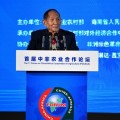 China-Africa: “Huge” ag cooperation potential
China-Africa: “Huge” ag cooperation potential
 Africa’s growth lies with smallholder farmers
Africa’s growth lies with smallholder farmers
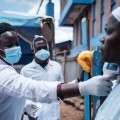 AU warns cost of COVID-19 pandemic could be long-lasting in Africa
AU warns cost of COVID-19 pandemic could be long-lasting in Africa
 30 civil society organizations have written to the World Bank Group demanding to publicly disclose the Africa Energy Approach paper.
30 civil society organizations have written to the World Bank Group demanding to publicly disclose the Africa Energy Approach paper.
You may like
NGO WORK
US Luxury Safari Operator Tightens Stranglehold Over Maasai Land in Tanzania
Published
15 hours agoon
April 18, 2024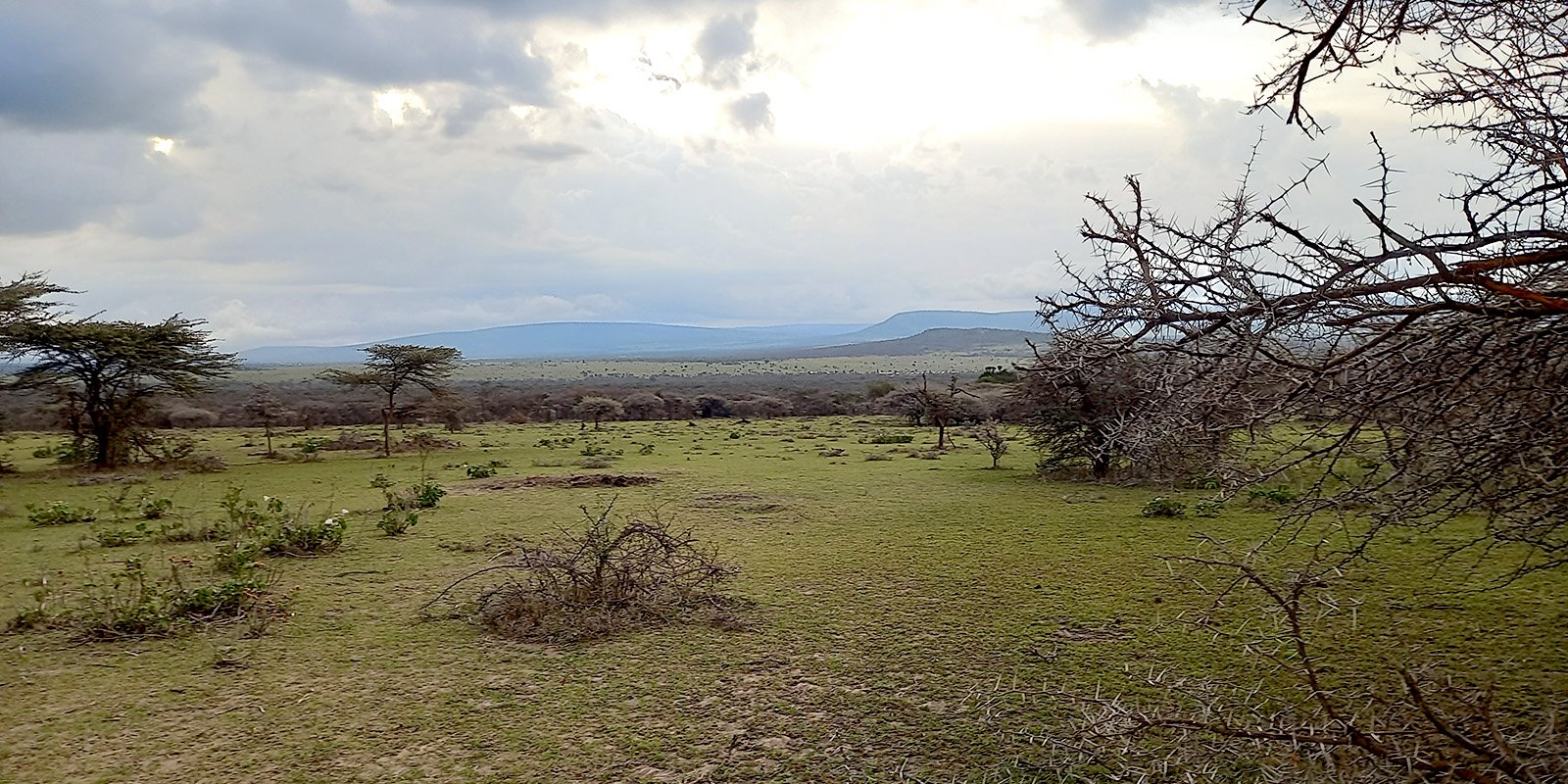
Oakland, CA – Boston-based Thomson Safaris is exploiting the Tanzanian government’s brutal repression of land defenders to legitimize control over Maasai land in the Loliondo Division of the Ngorongoro District. In June 2022, the government carried out land demarcation to create a Game Reserve in Loliondo, which saw security forces fire live ammunition on the Maasai, severely wounding dozens and displacing thousands. In the immediate aftermath of these events, Thomson Safaris carried out a resurvey of a long-contested land claim they have in the same area. Communities say they were excluded from the resurvey process and alleged in a November 2023 court filing that they have since suffered abuse by the company’s agents enforcing the new boundaries.
“Over the past two years, the Tanzanian government has repeatedly shown it will aid and abet foreign corporations operating luxury safaris at the expense of the Maasai communities who have stewarded these lands for generations. While labeling itself as a sustainable tourism operator, the American firm is getting away with capitalizing on this repression,” said Anuradha Mittal, Executive Director of the Oakland Institute.
Capitalizing on Chaos: Thomson Safaris Tightens Its Stranglehold Over Indigenous Lands in Tanzania exposes how in the aftermath of the resurvey, the strict enforcement of the new boundaries has aggravated daily hardships for the villagers who report incidents of violence – allegedly committed by Thomson Safaris’ guides – against pastoralists and their children. One villager cited in the report alleges, “My boy was taking care of the livestock when he was caught by a Thomson Safaris’ guide and beaten for no reason. He suffered injuries on his body…Our rights have been violated by an intruder in our ancestors’ land.”
As documented in the Oakland Institute’s 2018 report, Losing the Serengeti, since 2006, the Mondorosi, Sukenya, and Soitsambu villages have been ensnared in a prolonged struggle for the return of their lands against the company. Local communities seek to reclaim 10,000 acres of land in what is known to them as the Sukenya farm, originally transferred forty years ago without their Free, Prior, and Informed Consent and vital to their pastoral livelihoods. For over a decade, communities have pursued legal action for the full return of their land in the High Court of Tanzania and Court of Appeal, but to no avail.
On June 8, 2022, the Tanzanian government initiated the illegal demarcation of over 370,000 acres of land in Loliondo Division to create a Game Reserve. The exercise led to widespread violence by state security forces, with dozens of community leaders and villagers arbitrarily arrested while others were forced into hiding. According to local communities, Thomson Safaris took advantage of this increasing state violence against the Maasai and the ensuing chaos to consolidate its claim to the land.
The strict enforcement of the Sukenya farm’s boundaries has reportedly forced villagers to walk hours to access essential medical services and schools. Communities have also lost access to prime grazing land, which has been particularly catastrophic in the context of the drought that ravaged the Horn of Africa between 2020 and 2023. Thomson Safaris is now allegedly lobbying the Tanzanian government to change the land use in the surrounding area exclusively for tourism – a move that would further prohibit Maasai pastoralists’ livestock from accessing vital water and grazing land.
In response to an inquiry by the Oakland Institute, Thomson Safaris’ attorneys in Tanzania denied the allegations about the resurvey and its impact on villagers. While they called the claims “baseless,” the firm failed to provide any evidence that the resurvey took place with full community participation. Despite the ongoing land dispute and allegations of violence made in court by villagers, the company remains the preferred Tanzania operator for high-profile universities, museums, and conservation groups.
Alongside Capitalizing on Chaos, the Institute released Pulling Back the Curtain: How the US Drives Tanzania’s War on the Indigenous. The brief reveals how Tanzania’s largest bilateral donor has been instrumental in designing the country’s aggressive strategy to expand the tourism industry at the expense of Indigenous communities. It details how the US is behind a number of policy changes and measures that have led to the expansion of so-called protected areas and favored private operators, including fiscal measures to their benefit. USAID has for instance prepared development plans for Ruaha National Park – currently being implemented by the World Bank – that will result in the eviction of tens of thousands of people. It has also enabled the creation of new Game Reserves, which will seize over a million hectares of Maasai land and evict thousands of people.
“The fingerprints of the US government are all over the harmful policies and projects to expand protected areas, rendering it complicit in the forced evictions of the Maasai and other local communities across the country. It has turned a blind eye to the egregious human rights abuses of the government so that the rich Americans can keep going on upscale safaris and operators like Thomson Safaris keep raking in massive profits,” concluded Mittal.
Indigenous communities are not enduring hardships solely because of the wrongdoings of the Tanzanian government. The US government and private operators like Thomson Safaris all bear their share of responsibility and must be held accountable for it.
Source: oaklandinstitute.org
Related posts:

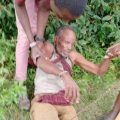 Worldwide Condemnation Over Violence against the Maasai by Tanzania Security Forces
Worldwide Condemnation Over Violence against the Maasai by Tanzania Security Forces
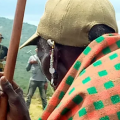 URGENT ALERT – Heavy Police Presence in Loliondo as Threats of Mass Evictions of the Maasai Intensify
URGENT ALERT – Heavy Police Presence in Loliondo as Threats of Mass Evictions of the Maasai Intensify
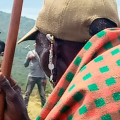 Call to Sever Ties with Tanzanian Government Over Latest Human Rights Abuses Against the Maasai
Call to Sever Ties with Tanzanian Government Over Latest Human Rights Abuses Against the Maasai
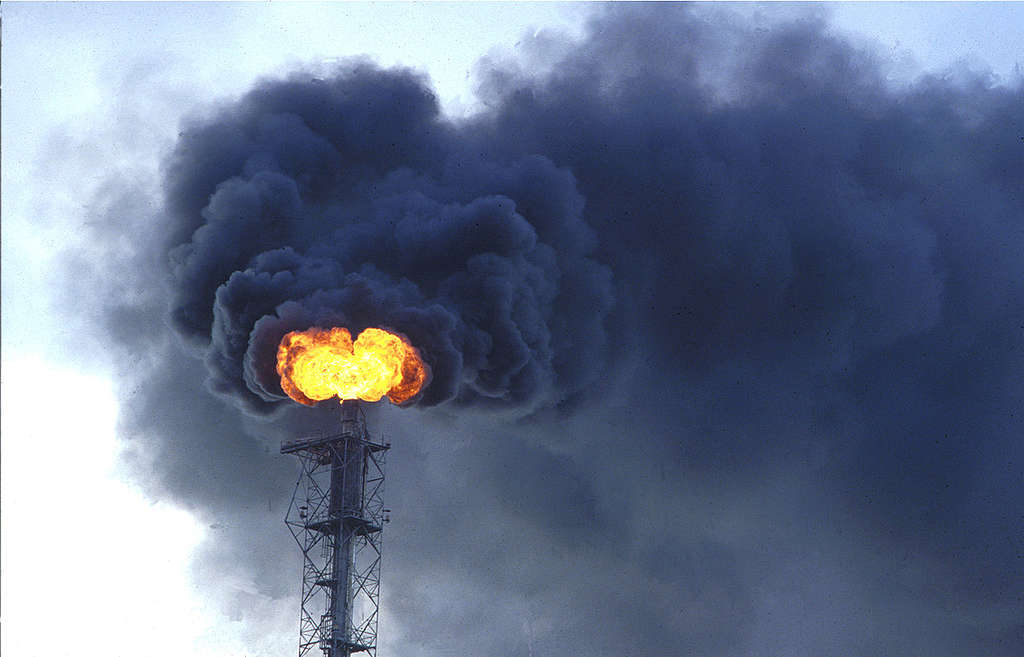
On 28 March 2024, the French oil and gas giant TotalEnergies celebrated its 100-year anniversary. In a happy coincidence, Total’s centennial party was spoiled by the news that their intimidatory legal action against Greenpeace France was unsuccessful!
The ruling was a major victory for freedom of expression and the fight against polluting companies like Total – especially since they are hellbent on expanding climate-wrecking operations despite a worsening climate crisis. Behind its facade as a “French industrial flagship” lies a grim history of environmental devastation and links to human rights abuses.
TotalEnergies’ history of lies
Researchers have found that Total’s awareness that its products could lead to catastrophic global warming dates to the early 1970s. However, according to historians, Total chose to implement a strategy of misinformation and a “factory of doubt” for many years, in order to delay and distract political action to limit oil and gas extraction.
Today, Total remains one of the most polluting companies on the planet. Despite its pledge to be net zero by 2050, fossil fuels still account for 98% of its energy production – and it recently announced plans to increase its fossil fuel production over the next 5 years.
TotalEnergies’ history linked to human rights abusers
Total proudly displays its ‘ethical charter’, but it has not hesitated to develop projects in countries where human rights are constantly violated.
In Burma, in the early 1990s, Total developed the Yadana gas project and became a major financial contributor to the ruling military regime, which was responsible for brutal human rights violations. It took two decades of pressure from civil society for Total to withdraw from the country.
More recently, Total’s giant EACOP pipeline and the Tilenga project has resulted in over 118,000 people being forced from their land in Uganda and Tanzania, according to grassroots organisations. Ugandan student activists were reportedly jailed by their government after voicing concerns about the project.
In 2022, Total was reportedly the only Western oil company that did not declare its withdrawal from Russia following the invasion of Ukraine. Working with Russian partners, Total extracts a gas condensate that has allegedly been processed into fuel for Russian fighter planes.
TotalEnergies’ history of toxic extraction
In Yemen, Total has reportedly been operating oil wells on the Messila field since the 1990s. Here, Total reportedly buried millions of litres of toxic water, which contaminated the only local freshwater source. The health of the population has reportedly been negatively affected, cancer cases have increased and farmers have been left destitute.
In Argentina, the Vaca Muerta shale gas extraction project is a real carbon bomb that could emit nearly 15 billion tonnes of CO₂e, according to Greenpeace France estimates. It is located on the lands of the Mapuche Indigenous populations, who say they have been displaced and the region is suffering from a huge amount of pollution.
“The oil companies entered our land without our permission … We had goats born without jaws, without mouths [because of pollution].”— an elder Campo Maripe to the Guardian
TotalEnergies’ history of environmental disasters
Like its competitors, Total has been involved in a number of tragic events that it would like to forget:
On December 12, 1999, the MV Erika, an oil tanker chartered by Total, sank off the coast of Northern France. The vessel spilled 20,000 tons of heavy fuel oil across 400 km of coastline, causing major environmental damage. Over 200,000 birds were killed.
Total denied responsibility, but was found guilty and convicted of “gross negligence” by French courts.
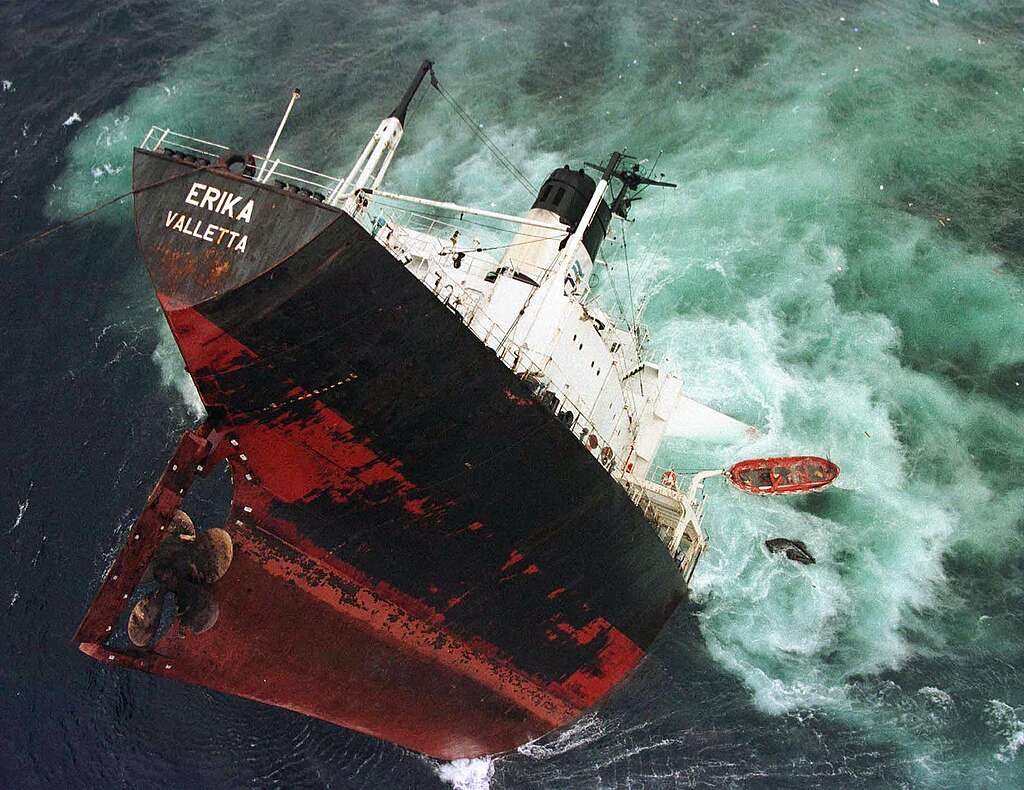
A few years later, 31 people were killed and more than 2,500 injured, as 400 tons of ammonium nitrate exploded in a factory owned by a subsidiary of Total in Toulouse, France.
It was the worst industrial disaster to hit the country in fifty years. Here too, Total denied responsibility, and it took an 18-year trial for Total’s subsidiary to finally be convicted.
We must put an end to the reign of oil and gas!
Despite repeated warnings from scientists, Total continues to expand its fossil fuel operations. It’s time to hold the fossil fuel industry accountable for the loss and damage they have caused to humans, nature and the climate. It’s time to stop all new coal, gas and oil projects and phase out these dirty fuels forever. It’s time for Total and the entire fossil fuel industry to stop drilling, and start paying.
Original Source: Green Peace
Related posts:
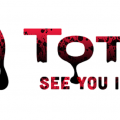
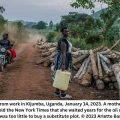 “Our Trust is Broken”: Oil Pipeline Project Impoverishes Thousands
“Our Trust is Broken”: Oil Pipeline Project Impoverishes Thousands
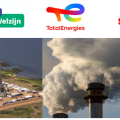 PFZW scraps funding from Total and others for failure to transition into a cleaner energy mix.
PFZW scraps funding from Total and others for failure to transition into a cleaner energy mix.
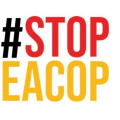 #StopEACOP campaign calls on Standard Bank to come clean about its funding of the East African Crude Oil Pipeline
#StopEACOP campaign calls on Standard Bank to come clean about its funding of the East African Crude Oil Pipeline
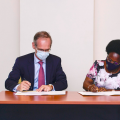 Uganda, Total sign crude oil pipeline deal
Uganda, Total sign crude oil pipeline deal
NGO WORK
Amidst Failed US Sanctions, the Indigenous Pay the Price for Nicaragua’s Gold Rush
Published
2 months agoon
February 7, 2024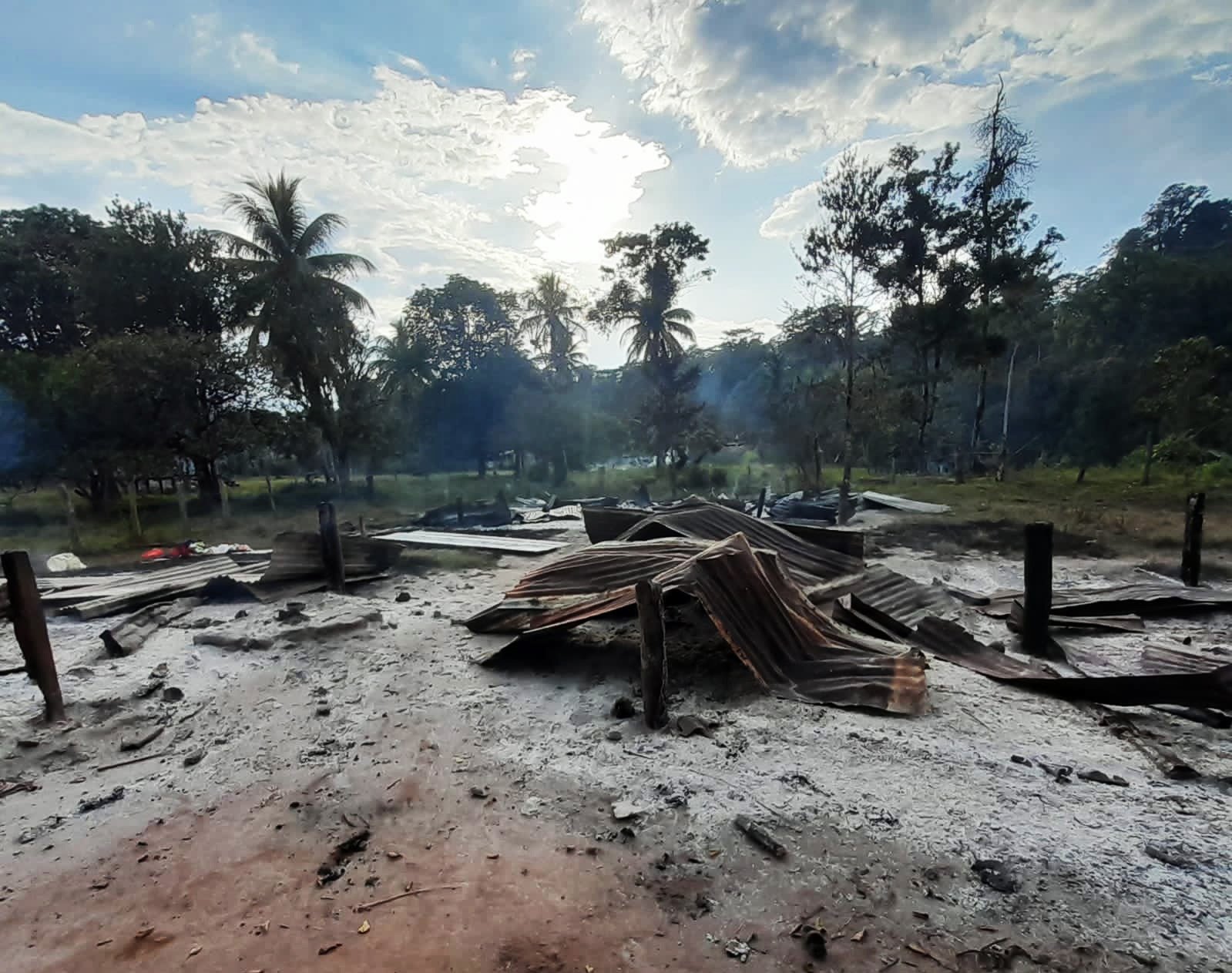
In a new report, Nicaragua’s Gold Rush, the Oakland Institute exposes how, despite US sanctions on Nicaragua’s gold mining sector, the industry has boomed, fueled by foreign business interests. The US is the primary destination, accounting for a staggering 79 percent of total Nicaraguan gold exports.
“The devastating cost of this expansion is borne by the Indigenous and Afro-descendant communities in the Caribbean Coast Autonomous Regions, who face incessant violence, massacres, kidnappings, and colonization of their lands,” said Anuradha Mittal, Executive Director of the Oakland Institute and coauthor of the report.
The US government issued sanctions against state-owned mining company ENIMINAS in June 2022, accusing the Ortega-Murillo regime of “using gold revenue to continue to oppress the people of Nicaragua and engage in activities that pose a threat to the security of the hemisphere.” President Biden substantially expanded these sanctions by executive order in October 2022, authorizing the US Treasury to sanction any entity with financial connections to the US involved in Nicaragua’s gold sector.
The report reveals that the US government has so far failed to enforce these measures, allowing the gold sector to expand massively and continue to deliver significant revenues for the Ortega-Murillo regime and the shareholders of the firms involved. Numerous mining companies falling under the scope of the sanctions continue to operate with impunity and acquire new gold mining concessions amidst a surge in violence against Indigenous communities.
The main beneficiary of the gold boom is Canada-based Calibre Mining Corp., whose 57 concessions cover more than 1.1 million hectares (ha) – nine percent of Nicaragua’s total territory. 26 of its metallic mining concessions – covering over 940,000 ha – were awarded between June 2021 and December 2022. 11 of them – totaling 336,598 ha – were awarded after the US Treasury announced the sanctions in June 2022. If Calibre’s remaining 15 requests are granted, a single foreign company will control 1.57 million ha, or 13.1 percent of Nicaragua’s landmass. Adding to the concern is the overlap of many of Calibre’s concessions with state-recognized Indigenous and Afro-descendant territories, where community members report a lack of consultation and consent– a violation of Nicaraguan law and international norms. As a Canadian company operating in Nicaragua that also owns mining concessions in the US through wholly-owned subsidiaries, Calibre is a clear candidate for sanctions designation under Biden’s executive order.
The report also identifies other transnational corporations controlling vast mining concessions in Nicaragua, including Canada’s Mako Mining Corp.; China’s Zhong Fu Development; Colombia’s Grupo Mineros; and the UK’s Condor Gold and Royal Road Minerals. The leading financiers of these foreign companies include US investment firms BlackRock Inc., Van Eck Associates Corp., and Invesco Ltd., Canadian mining firms B2Gold Corp. and Agnico Eagle Mines Ltd.
“The Biden administration talks a big game about using targeted sanctions to hold human rights violators accountable in Nicaragua, but the Treasury Department lets the worst of these actors off the hook,” said Josh Mayer, Oakland Institute fellow and coauthor of the report. “Sanctions enforcement must go beyond Nicaraguan entities to have any chance of stopping the violent colonization of Indigenous and Afro-descendant territories,” he continued.
“By failing to implement the sanctions, the Biden administration is effectively sustaining US and international mining companies with US investors that profit from Nicaragua’s gold sector. Neglecting to hold these financial interests accountable not only allows violence against Indigenous and Afro-descendant communities to escalate but is another evidence of the lack of credibility of President Biden’s commitment to upholding human rights,” concluded Mittal.
Source: oaklandinstitute
Related posts:
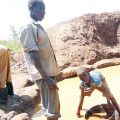
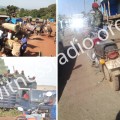 State Power: Army Used Expired Mining license to Forcefully Evict 120,000 Families Off Gold-Rich Land
State Power: Army Used Expired Mining license to Forcefully Evict 120,000 Families Off Gold-Rich Land
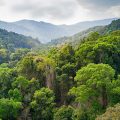 The Rush for Carbon Concessions: More Land Theft and Deforestation
The Rush for Carbon Concessions: More Land Theft and Deforestation
 URGENT ALERT: Tanzanian Government on a Rampage Against Indigenous People
URGENT ALERT: Tanzanian Government on a Rampage Against Indigenous People
 Almost 2,000 land and environmental defenders were killed between 2012 and 2022 for simply standing up to protect our planet and us all from the accelerating climate crisis.
Almost 2,000 land and environmental defenders were killed between 2012 and 2022 for simply standing up to protect our planet and us all from the accelerating climate crisis.

US Luxury Safari Operator Tightens Stranglehold Over Maasai Land in Tanzania

Ugandan Activists Face Criminal Charges Following Pipeline Protest

Insurance firms should shun the East African Crude Oil Pipeline

How Kiryandongo land conflict has affected children

Protect family farming land to guarantee global food sovereignty and Climate change adaptation and mitigation – Global conference on Family Farming.

Food inflation: The math doesn’t add up without factoring in corporate power

Oil project-affected persons express disappointment in Uganda judiciary

100 years of Total Energies – a dark legacy

Innovative Finance from Canada projects positive impact on local communities.
Over 5000 Indigenous Communities evicted in Kiryandongo District
Petition To Land Inquiry Commission Over Human Rights In Kiryandongo District
Invisible victims of Uganda Land Grabs
Resource Center
Legal Framework
READ BY CATEGORY
Newsletter
Trending
-
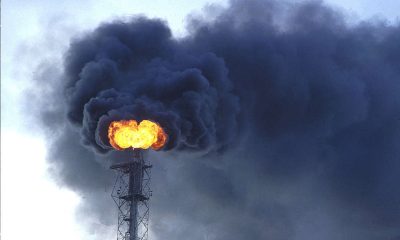
 NGO WORK2 weeks ago
NGO WORK2 weeks ago100 years of Total Energies – a dark legacy
-
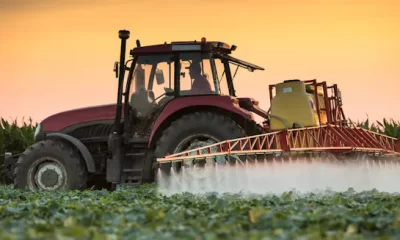
 MEDIA FOR CHANGE NETWORK2 weeks ago
MEDIA FOR CHANGE NETWORK2 weeks agoChip in to take Bayer down!
-
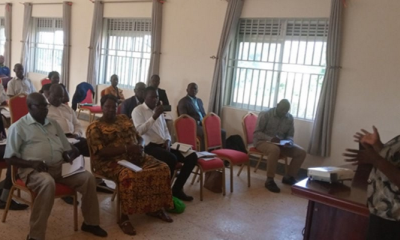
 MEDIA FOR CHANGE NETWORK2 weeks ago
MEDIA FOR CHANGE NETWORK2 weeks agoHow Kiryandongo land conflict has affected children
-
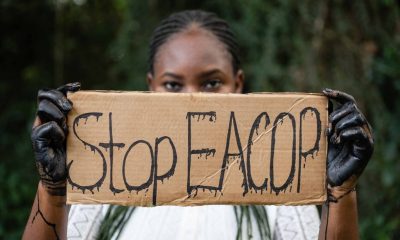
 MEDIA FOR CHANGE NETWORK2 days ago
MEDIA FOR CHANGE NETWORK2 days agoUgandan Activists Face Criminal Charges Following Pipeline Protest
-
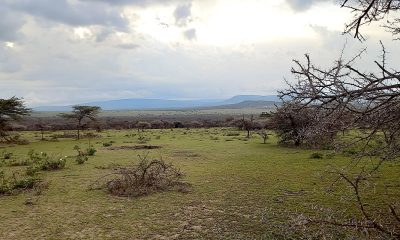
 NGO WORK15 hours ago
NGO WORK15 hours agoUS Luxury Safari Operator Tightens Stranglehold Over Maasai Land in Tanzania
-
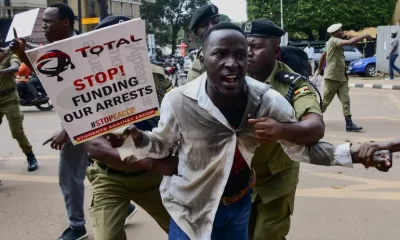
 MEDIA FOR CHANGE NETWORK2 days ago
MEDIA FOR CHANGE NETWORK2 days agoInsurance firms should shun the East African Crude Oil Pipeline
